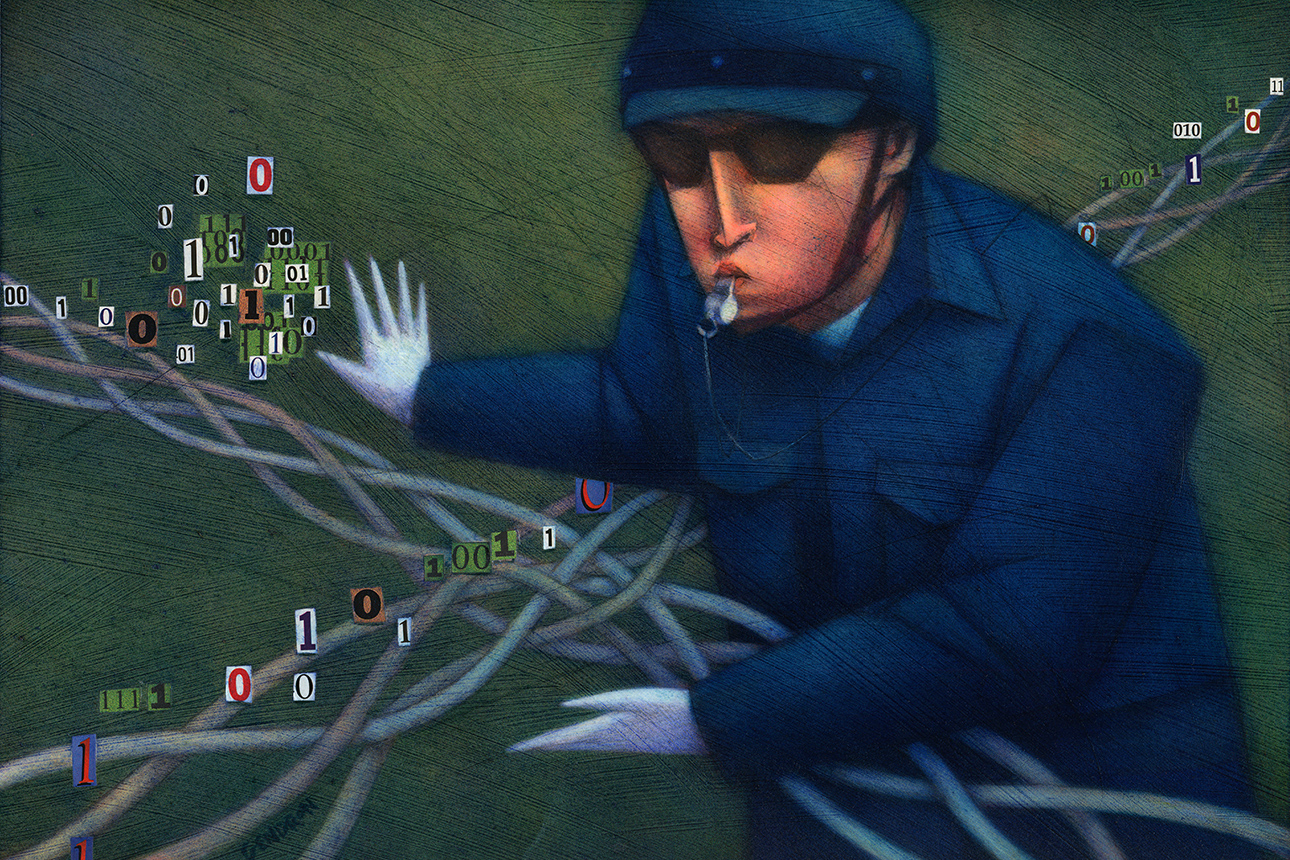Setting the Rules of the Road
Put the right rules in place to orchestrate a platform that creates value for all participants — and helps manage risk.

Image courtesy of Cathy Gendron/theispot.com
The rapid rise of a few powerful digital ecosystems disguises a harsh reality about this business model: Less than 15% of business ecosystems are sustainable in the long run.1 When we examined 110 failed ecosystems in a variety of industries, we found that more than a third of the failures stemmed from their governance models — that is, the explicit and/or implicit structures, rules, and practices that frame and direct the behavior and interplay of ecosystem participants.2
Business ecosystems are prone to different types of governance failures. One reason why the BlackBerry OS lost its competition with Apple’s iOS and Google’s Android was because Research In Motion failed to open its app ecosystem widely to developers until it was too late.3 Conversely, the video game industry fell into recession during the so-called Atari Shock in the 1980s in part because of overly open access to its ecosystem, which resulted in a flood of inferior games. Badly behaved platform participants, conflicts among ecosystem partners, and backlash from consumers or regulators are other indicators of governance flaws that can bring down an ecosystem.4
Many orchestrators struggle to find an effective governance model because managing an ecosystem is very different from managing an integrated company or a linear supply chain. Ecosystems rely on voluntary collaboration among independent partners rather than clearly defined customer-supplier relationships and transactional contracts. The orchestrator cannot exert hierarchical control but must convince partners to join and collaborate in the ecosystem. These challenges are exacerbated by the dynamic nature of many ecosystems, which develop and evolve quickly and continually add new products, services, and members.
Ecosystem leaders who understand the components of a comprehensive governance model and glean insights from ecosystem successes and failures can make more informed and explicit governance decisions. In doing so, they can improve the odds that their ecosystems will be among the lucky few that survive and prosper over the long term.
References
1. M. Reeves, H. Lotan, J. Legrand, et al., “How Business Ecosystems Rise (and Often Fall),” MIT Sloan Management Review, July 30, 2019, https://dev03.mitsmr.io.
2. U. Pidun, M. Reeves, and M. Schüssler, “Why Do Most Business Ecosystems Fail?” Boston Consulting Group, June 22, 2020, www.bcg.com.
3. A. Moazed and N. Johnson, “Modern Monopolies: What It Takes to Dominate the 21st Century Economy” (New York: St. Martin’s Press, 2016).
4. U. Pidun, M. Reeves, and N. Knust, “How Do You Manage a Business Ecosystem?” Boston Consulting Group, Jan. 20, 2021, www.bcg.com.
5. “Google Announces $10 Million Android Developer Challenge,” Google, Nov. 12, 2007, http://googlepress.blogspot.com.
6. E. Cosgrove, “Checking in With Climate Corp’s Open Platform Strategy and the Future of Ag Data,” AgFunder News, Jan. 30, 2018, https://agfundernews.com.
7. “Doing Business 2020,” PDF file (Washington, D.C.: The World Bank, 2020), https://openknowledge.worldbank.org; and P. Gompers, J. Ishii, and A. Metrick, “Corporate Governance and Equity Prices,” The Quarterly Journal of Economics 118, no. 1 (February 2003): 107-156.
8. D. Nield, “The Best Smart Home Systems 2021: Top Ecosystems Explained,” The Ambient, June 30, 2021, www.the-ambient.com.
9. G.G. Parker and M.W. Van Alstyne, “Two-Sided Network Effects: A Theory of Information Product Design,” Management Science 51, no. 10 (October 2005): 1494-1504.
10. M.A. Cusumano, A. Gawer, and D.B. Yoffie, “The Business of Platforms: Strategy in the Age of Digital Competition, Innovation, and Power” (New York: Harper Business, 2019).
11. S. Phillips, “A Brief History of Facebook,” The Guardian, July 25, 2007, www.theguardian.com.
12. S. Raju, “Main Reasons for the Failure of Orkut,” StartupTalky, Aug. 4, 2021, https://startuptalky.com.
13. M. Aguiar, U. Pidun, S. Lacanna, et al., “Building Trust in Business Ecosystems,” Boston Consulting Group, Feb. 10, 2021, www.bcg.com.
14. M. Aguiar, F. Candelon, U. Pidun, et al., “Designing for Trust: Business Lessons From an Underdog Ride-Share Startup,” Fortune, May 4, 2021, https://fortune.com.
15. C. Cennamo, “Competing in Digital Markets: A Platform-Based Perspective,” Academy of Management Perspectives 35, no. 2 (May 2021): 265-291.
16. R. O’Donoghue, “Android Forks: Why Google Can Rest Easy, for Now,” mobiForge, Oct. 9, 2014, https://mobiforge.com.
17. R. Amadeo, “Google’s Iron Grip on Android: Controlling Open Source by Any Means Necessary,” Ars Technica, July 21, 2018, https://arstechnica.com.
